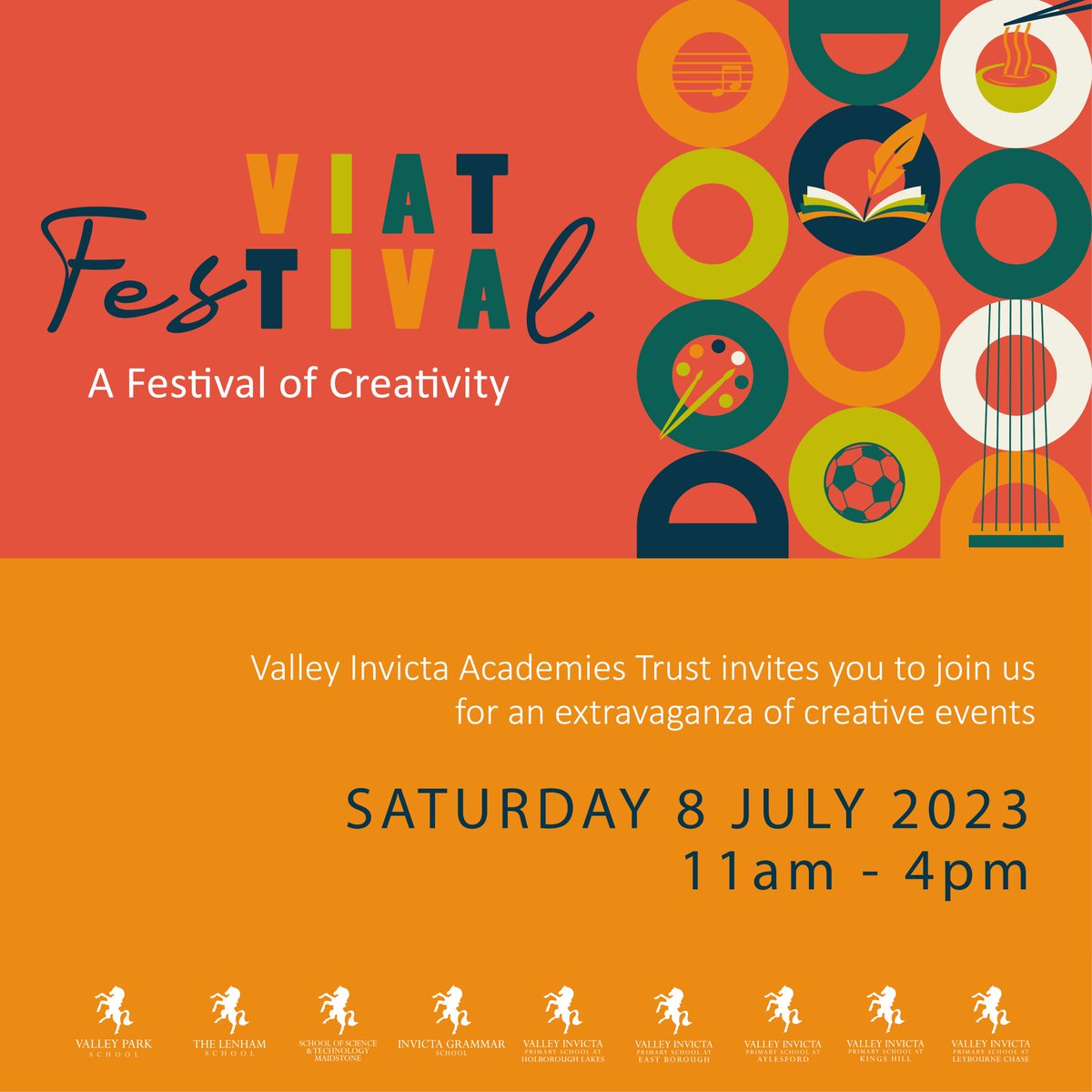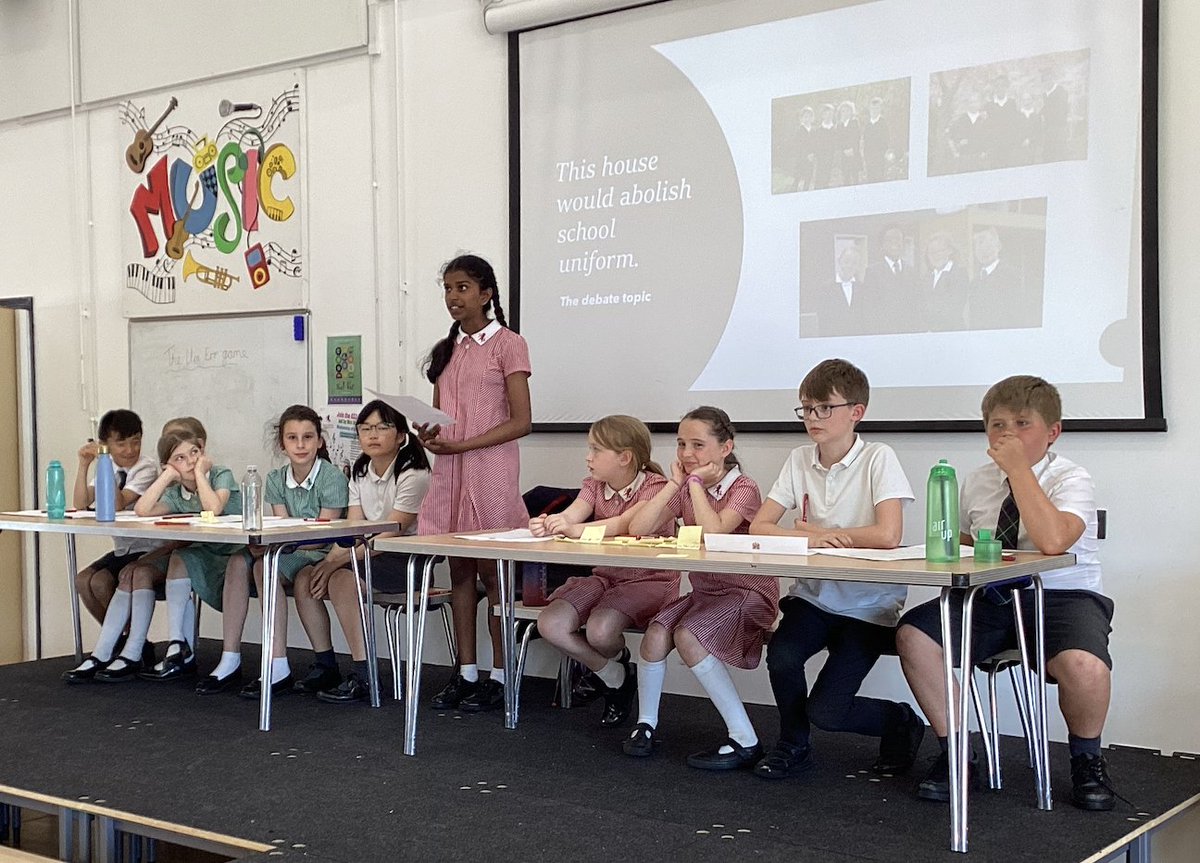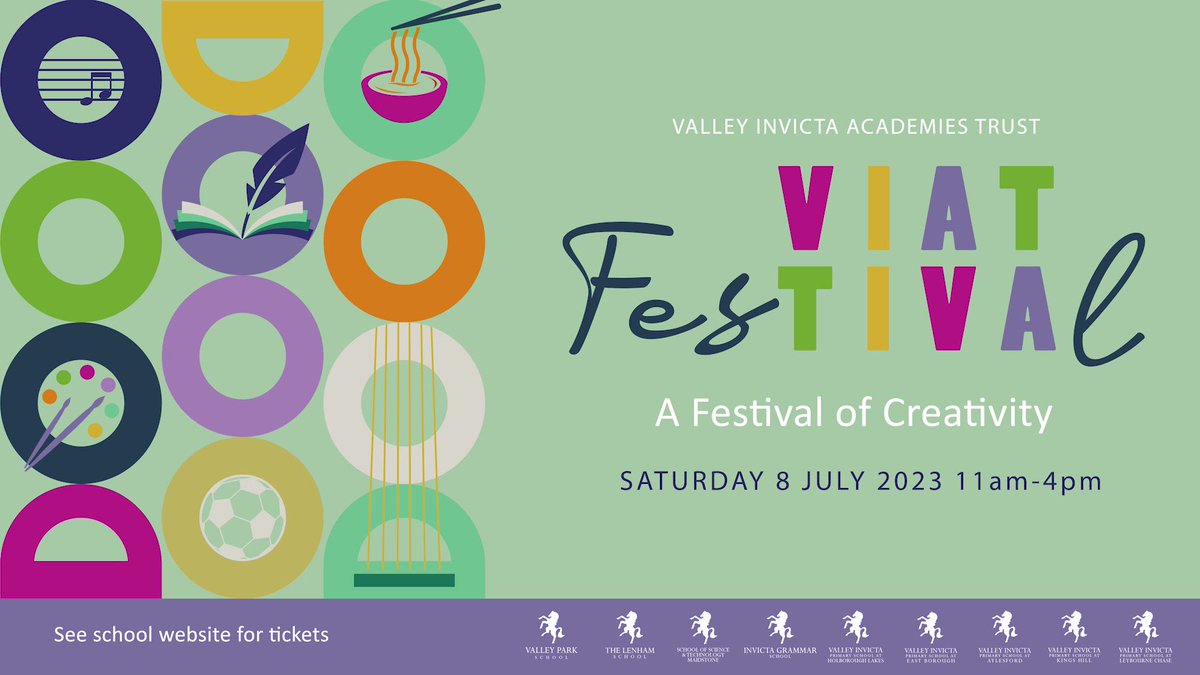Download our FREE smartphone app today!
08/11/23
Three of our Year 5 pupils decided to raise money by holding a sale on the green. The girls raised £32 which they used to purchase items for the local food bank. Working together they selected long life items and added up the costs. What a lovely gesture from our pupils!
follow us @VIPSHolborough
13/10/23
Year 5 have been busy creating Anderson shelters as part of their Design and Technology lessons. We can't wait to see their finished work.
follow us @VIPSHolborough
27/09/23
The winners of our Summer Reading Challenge received their chosen books during the weekly celebration assembly. Keep reading!
follow us @VIPSHolborough
27/06/23
The VIAT Festival of Creativity is just over 2 weeks away and we are so excited to invite you to an extravaganza of creative events and performances! Keep your eyes peeled for some sneak peaks of behind the scenes content coming soon👀 pic.twitter.com/kpyYUqxwzo
follow us @VIPSHolborough
26/06/23
The VIAT Festival of Creativity is just over 2 weeks away and we are so excited to invite you to an extravaganza of creative events and performances! Keep your eyes peeled for some sneak peaks of behind the scenes content coming soon👀 pic.twitter.com/kpyYUqxwzo
follow us @VIPSHolborough
21/06/23
Book now!Invicta Grammar School (@invictagrammar)The VIAT Festival of Creativity is a vibrant celebration of creativity and talent, featuring a diverse range of events and activities. To book or view the activities and events, head to the link in our bio! 🎷🎺🎨 #kent #kentfestival #VIATFestival #InvictaGrammar— https://x.com/invictagrammar/status/1671159647091462153
follow us @VIPSHolborough
21/06/23
A sneak peak of this year's VIAT Festival! Expect to see a variety of Art, Literature, Drama and Music performances from students across the Trust. Also attending this year is @jamieknightfs who will be performing creative Freestyle Football and hosting masterclasses on the day! pic.twitter.com/tqRjlaW6cg
follow us @VIPSHolborough
19/06/23
We were extremely proud to have held the first Trust Primary Debating event at Holborough Lakes last week. Year 4 pupils from @VIPSAylesford, @VIPSEastBorough and @VIPSHolborough came together to join in with a debating workshop and then went on to participate in a full debate.
follow us @VIPSHolborough
16/06/23
Happy Birthday wishes to Luca, Kamron, Mason, Annabelle and Richie-James who all celebrate birthdays at this time. Hope you have a wonderful celebration!
follow us @VIPSHolborough
16/06/23
A sneak peak of this year's VIAT Festival! Expect to see a variety of Art, Literature, Drama and Music performances from students across the Trust. Also attending this year is @jamieknightfs who will be performing creative Freestyle Football and hosting masterclasses on the day! pic.twitter.com/tqRjlaW6cg
follow us @VIPSHolborough
08/06/23
We are pleased to announce that we will be working towards becoming a Hedgehog Friendly Campus with @HogFriendly and @hedgehogsociety The team will work on a number of actions to protect hedgehogs, enhance their habitat and educate others on how they can help. #HogFriendly
follow us @VIPSHolborough
08/06/23
Yesterday some of our children had a wonderful day at Valley Park School at a Taster day of fun drama, music and creativity! They did some great day dancing, doodling & singing!
follow us @VIPSHolborough
08/06/23
Happy birthday wishes to Louis, Carlo, Maciemay, Henry, James, and Kit who all celebrate birthdays! We hope you have fun!
follow us @VIPSHolborough
25/05/23
As a special treat for the hard efforts and resilience in their SATS exams, the Year 6’s had a fun time bowling together as a class at Hollywood Bowl in Rochester! They played an hour of bowling and competition was high! They then enjoyed a lunch together!
follow us @VIPSHolborough
25/05/23
On Friday 19th May our Year 5 children took part in the VIAT Young Adventurers Camp out at Buckmore Park where they helped pitching and collapsing tents and slept better than we expected! They took part in some exciting team building activities, fun football and more!
follow us @VIPSHolborough
25/05/23
Happy Birthday wishes to Evie, Daniel, Sophia, Sienna and Isaac who all celebrate birthdays! We hope you have a wonderful birthday!
follow us @VIPSHolborough
17/05/23
Happy birthday to Amelia, Darcy-Rae, Blake, Thea and Mylah who celebrate birthdays! We hope you have lots of fun!
follow us @VIPSHolborough
05/05/23
To celebrate the Coronation of His Majesty The King, the children came dressed to reflect a country within the Commonwealth. Each year group presented information on their chosen country during an assembly.
follow us @VIPSHolborough
04/05/23
On 27th April the Yr 5 children took part in a fun-filled sports event at Holmesdale School. Three other schools attended which made for a competitive day. The class played team games and tried a range of athletics events. The children were praised for their sporting fairness!
follow us @VIPSHolborough
04/05/23
Happy birthday to Nancy, Oliver, Astrid, Marnie, Eloise, Arish and Rubie who all celebrate birthdays! We hope you have a joyous day!
follow us @VIPSHolborough
28/04/23
This week Year 5 took part in a sports event at Holmesdale. The children played team games and tried a range of athletics events. As always, Y5 from Holborough Lakes were praised for not only their effort but the fantastic behaviour and sporting fairness.
follow us @VIPSHolborough
27/04/23
Year 3 and 4 had a great day at Leeds Castle, exploring the grounds and meeting the birds of prey!
follow us @VIPSHolborough
26/04/23
Happy birthday to Gabriel, Hazel, Isreal, Mila, Javier, Ralph, Joshua, Max and Saiya who have all celebrated birthdays recently. We hope you had an amazing day! pic.twitter.com/IsFGofNzZn
follow us @VIPSHolborough
21/04/23
This week our Year 6 pupils attended the 'Safety in Action event. This is an interactive event for Year 6 children to learn about some of the dangers they may face as they become more independent and prepare for transition to secondary school. pic.twitter.com/CGHleCoRQl
follow us @VIPSHolborough
21/04/23
*SAVE THE DATE* Saturday 8th July, 11am - 4pm An exciting performance opportunity for our pupils at the VIAT Festival of Creativity. Keep your eyes peeled for more information on how to get your child involved. pic.twitter.com/sEiNo6ztE7
follow us @VIPSHolborough






















